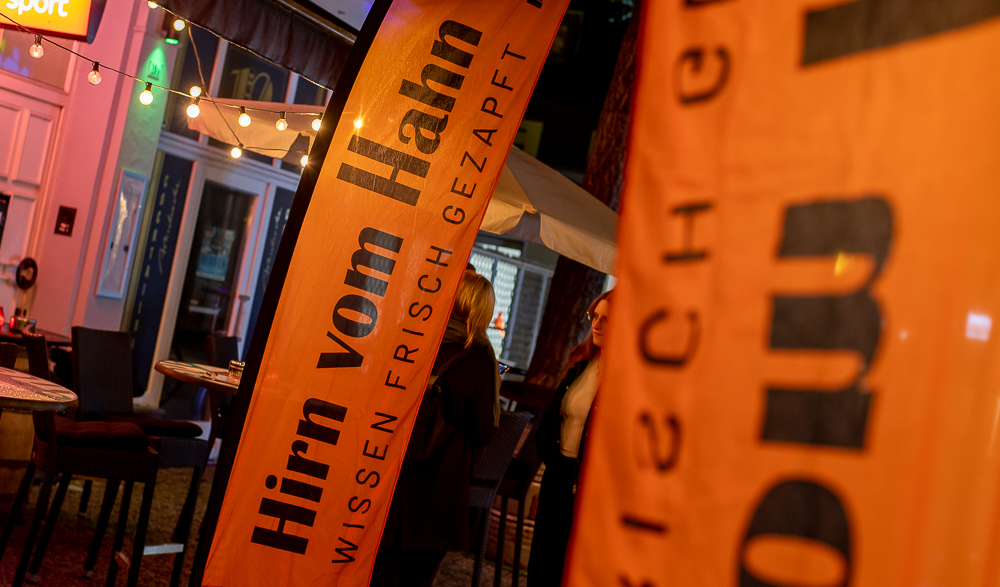A wide selection of 14 topics is open to those interested: Pub-goers will learn, for example, how the famous TV doctor Dr. House swotted up on anatomy - and how medical students learn today; what "egg dance" political teachers try to do to teach their pupils balanced political judgement; or how to get the seabed to reveal the secrets from its past. The range of subject areas extends from computer science, environmental science and engineering to special education, Protestant theology and didactics.
The DFKI is also participating in the Pub Science Event. Scientist Daphne Theodorakopoulos from the research department Marine Perception will speak at 7:30 pm in the "Umbaubar" pub on the topic: Fashion in online business - how sustainable is it really? How can you tell if jeans, T-shirts or summer dresses are produced and sold in an environmentally friendly way? The computer scientist is one of two researchers who are currently working on an algorithm that will make precisely this information, such as water consumption, use of chemicals and CO2 footprint, visible in online retail. Her work is part of the lighthouse project ZuSiNa, funded by the German Federal Ministry for the Environment, Nature Conservation, Nuclear Safety and Consumer Protection (BMUV), which aims to improve access and visibility of sustainability information in online retail through artificial intelligence. The scientist explains where she gets trustworthy data, how she evaluates it and why a lot of companies such as Idealo, Otto or Avocadostore are involved in the joint project. "Sustainability claims must not be a sales trick like greenwashing, but must be specified", says Daphne Theodorakopoulos.
The second slot of the evening, starting at 20:45, will be taken over by Gabriele Gerlach, professor at the Institute of Biology and Environmental Sciences (IBU) at the University of Oldenburg and co-director of the Helmholtz Institute for Functional Marine Biodiversity (HIFMB). The evening will be moderated by Simone Wiegand from the DFKI Communications team.
In 20 minutes each, the researchers participating in the evening will give the pub guests an understanding of current scientific contexts in their respective fields, tell curiosities from their everyday work and report on fascinating research results. Visitors are invited to ask questions and to discuss their research with the scientists at the bar after the presentations.Between the two talks, those interested will have enough time to move on to another of the participating pubs and bars. Admission is free and registration is not required.
"Hirn vom Hahn" is a series of events organised by the Oldenburg Network for Science Communication (OLWIK). OLWIK is an association of various institutions from science and research in Oldenburg, including the DFKI in Oldenburg. It has set itself the task of making the scientific work that often takes place behind closed doors more accessible to the public. To this end, the OLWIK organises various events and also produces the podcast "Hirn gehört - Oldenburger Wissensschnack" with Oldenburg researchers.
The event is sponsored by the City of Oldenburg's Economic Development Department and the Gertrud and Hellmut Barthel Foundation. Further information on the programme of this year's edition of "Hirn vom Hahn - Wissen frisch gezapft" can be found at:
Hirn vom Hahn
This text is based on the joint press release of the Oldenburg Network for Science Communication (OLWIK).

